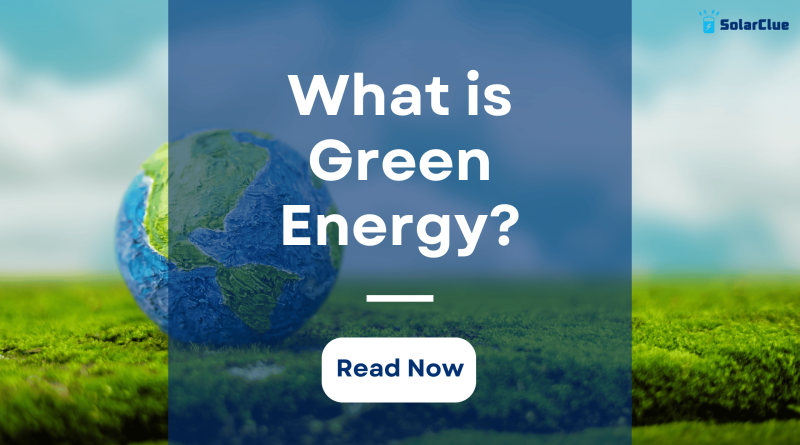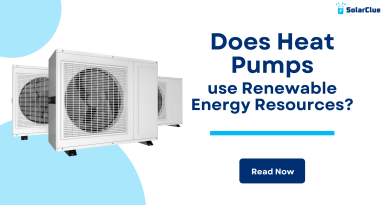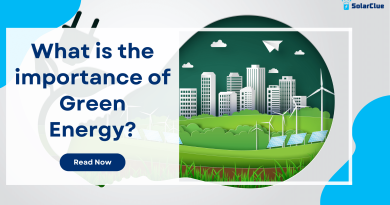What is Green Energy?
There are so much talks about sustainable development and adopting green energy in India. But what is green energy? It is also known as renewable energy. Green energy comes from natural sources like the sun, wind, and water, and it doesn’t harm the environment. India is facing severe environmental issues, like pollution, global warming. One of the big contributors to that is the appliances we use in our daily lives. They consume huge amount of electricity, which is generated from burning of fossil fuels. This emits harmful pollutants and greenhouse gas emissions. This leads to high carbon footprint, pollution and global warming.
But, what can we do to reduce the environmental issues we are facing? It can be done if we move towards green energy. In this blog we will discuss what is meant by green energy and green energy solutions. Let’s get started!
Table of Contents
Green Energy Meaning
Green energy, also known as clean energy or renewable energy, refers to sources of energy that are replenished naturally and have a minimal impact on the environment. Examples of green energy include solar power, wind power, hydroelectric power, geothermal energy, and biomass energy. These sources of energy are considered environmentally friendly and sustainable, as they do not contribute to greenhouse gas emissions or depleting finite resources.
There are many green energy solutions that we can adopt for a sustainable future. We have to replace our appliances with energy-efficient ones. Like, most Indian homes have geysers for meeting their hot water needs. But do you know it consumes huge amount of electricity. Instead you can install a heat pump. It consumes 75% less electricity.
Let’s understand in detail what is a heat pump, and how it helps in achieving a sustainable future.
What is a Heat Pump?

A heat pump is a water heating device, to meet your daily hot water needs. It is energy-efficient, as it uses less electricity than other traditional water heaters. The difference lies in the working principle. Any traditional water heater, like a geyser, uses direct electricity to heat water. Whereas, a heat pump uses electricity to only transfer heat from one place to another. This heat is used to produce hot water, rather than electricity. A heat pump is one of the best sustainable ideas for the future.
How a Heat Pump System Works?
A heat pump works on the principle of transferring heat from one place to another.
This system consists of two main components: an indoor unit and an outdoor unit.
The outdoor unit has two parts – an exhaust fan and a compressor. And the indoor unit is the storage tank, where water is stored.
The exhaust fan absorbs heat from the surrounding air, while the compressor compresses the refrigerant gas, increasing its temperature. This heated refrigerant gas then passes through a spiral condenser inside the indoor unit, transferring its heat to the water stored in the tank. This process continues until the desired water temperature is reached.
Unlike traditional geysers that use a significant amount of electricity to generate heat, heat pumps consume less energy by simply moving heat from one place to another. This makes them more energy-efficient and cost-effective in the long run.
Is Heat Pumps a way towards Green Energy?
Yes, heat pumps do utilize green energy to a significant extent. While they require electricity to operate, the heat they transfer into the water is derived from the surrounding air, which is a renewable and inexhaustible source of energy. In fact, heat pump water heaters are considered to be approximately 90% renewable, making them a highly sustainable choice for water heating.
What are the other benefits of Heat Pumps?
In addition to heat pumps being a sustainable alternative, there are several other benefits:
1. Cost-Effective
Heat pumps have high upfront cost. However, they make up for it through lower operating costs. Heat pumps transfer heat rather than generating it directly. This uses far less electricity – up to 75% less. Over its 10-15 year lifespan, a heat pump can save you hundreds or even thousands in energy costs. So it is actually a cheaper alternative to other traditional water heaters like geysers.
2. Long Lifespan
With proper maintenance, heat pumps last 15 years or more – significantly longer than standard electric geysers (8-10 years). So there is no need for replacement for a long time. This extended life cycle also contributes to it being a cost-effective option.
3. Reduced Water Wastage
Traditional water heaters constantly heat and reheat the same water, leading to significant energy losses. Heat pumps heat water more efficiently, so you don’t have to run the tap as long waiting for hot water. This conserves water, especially in households with long pipe runs.
4. Efficient in Cold Climates
One common misconception about heat pump water heaters is that they may not perform well in colder climates. However, modern heat pump water heaters are designed to be efficient even in low temperatures. They can effectively extract heat from the surrounding air, even when the temperature drops below freezing. This makes heat pump water heaters a viable and energy-efficient option for hot water needs in various climates, including colder regions.
5. Manual Temperature Setting
Most heat pumps allow you to change temperature as per your requirements. This ensures you have hot water when needed without wasting energy by overheating the water beyond your requirements.
6. Availability in Different Sizes
Heat Pumps normally have an indoor and an outdoor unit. But many homes in India, specially in big cities, may not have that space available. For that, a single-unit heat hump is designed. It is also called Integrated Heat Pump.
Conclusion
Green energy in India is the need of the hour. Heat pumps, being 90% renewable, is one of the best green energy solutions, that will contribute towards reducing environmental issues India is facing today. This system not only contributes towards sustainability, but also saves cost. It is now time for India to invest in heat pump, for a sustainable future for ourselves and the generations to come.
Visit SolarClue® to see the best heat pump water heaters. SolarClue® is an online marketplace where solar energy products are sold at discounts up to 50%.




